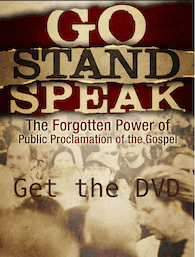At one time John 3: 16 was the most frequently quoted Bible verse:
“For God so loved the world, that he gave his only begotten Son, that whosoever believeth in him should not perish, but have everlasting life.” But today the most frequently quoted verse is Matthew 7: 1: “Judge not, that ye be not judged.”
“Judge not, that ye be not judged,” has become so popular because it is also one of the least understood verses of our day due to the groundswell of postmodern relativism philosophy. At the core of this philosophy are the beliefs; “that may be true for you, but it's not true for me.” And; “live and let live.” These principles are clearly contradictory to Scripture so it is little wonder that those who appeal to Matthew 7: 1 do it in an attempt to silence Christians. This tactic is quite effective because many Christians also have a flawed understanding of this verse.
Paul Copan writes in “True For You, But Not True For Me,
It’s been said that the most frequently quoted Bible verse is no longer John 3:16 but Matthew 7:1: ‘Do not judge, or you too will be judged.’Let’s unpack this so that we can better understand this within the context of Scripture so that we are better equipped when confronted with this argument. Remember that we interpret Scripture through Scripture not through our modern day philosophy or circumstances. Indeed, extracting a single verse to support one’s view is known as a “proof-text”. [2]
We cannot glibly quote this, though, without understanding what Jesus meant. When Jesus condemned judging, he wasn’t at all implying we should never make judgments about anyone. After all, a few verses later, Jesus himself calls certain people “pigs” and “dogs” (Matt. 7:6) and “wolves in sheep’s clothing” (7:15)! Any act of church discipline (1 Cor. 5:5) and rebuking false prophets (1 John 4:1) requires judgment. [1]
Jesus said “Do not judge lest you be judged” (Matt. 7:1; Luke 6:37). But He also said, “Judge with righteous judgment” (John 7:24; see Deut. 16:18). These are not contradictory statements since the context of Jesus’ words in Matthew 7 tells us what He means by “not judging” and what it means to judge with “righteous judgment.” Jesus was condemning those who judge using two standards of morality, one standard for the judge and another for the accused. The Bible maintains—in both the Old and New Testaments—that the standard of judgment must be equal for both parties (Num. 15:16). “For in the way you judge, you will be judged; and by your standard of measure, it shall be measured to you” (Matt. 7:2).
In essence, no one is above the law, not even those who make and enforce it. The Pharisees demonstrated a system based on two standards of justice: “They tie up heavy loads and lay them on men’s shoulders; but they themselves are unwilling to move them with so much as a finger” (Matt. 23:4).
If the “judge not” concept were taken to its logical conclusion, every court room in the country would have to be shut down, every judge laid off, and all attorneys sent packing. This says nothing of the Supreme Court and Congress, two institutions that deal with judgment on a national scale.
Endnotes:
1. Paul Copan, “True For You, But Not For Me”: Deflating the Slogans that Leave Christians Speechless (Minneapolis, MN: Bethany, 1998), 32.
2. Proof-text definition: A proof-text is a verse or short passage from the Bible used by someone as part of his proof for a doctrinal belief he wishes to substantiate to others. However, since verses and passages may rely extensively on the context in which they appear for correct interpretation, pulling these out of their context and having them stand alone in a “proof” can, at times, be very misleading. In addition, a set of such proof-texts can completely ignore other passages which, if added to the mix, might well lead to an entirely different conclusion. Someone who relies strongly only on a list of proof-texts in order to make a doctrinal argument may have a very weak case for his argument. Noting that a religious teacher relies heavily just on proof-texting is viewed in theological circles as a very negative evaluation. (Dewey).





comments
0 Responses to "Most frequently quoted Bible verse?"Post a Comment